- Home
- Iris Murdoch
The Red and The Green Page 10
The Red and The Green Read online
Page 10
This was the freedom Pat desired for himself in the purest inner recesses of his intent. But in his more ordinary being this desire was almost entirely fused with his resolve to free Ireland and his sense of having been born as a liberator. The Ireland which he loved was not personified or described, it was the refined purified counterpart of his own Irishness, the necessary magnetic pole of his own resentment of the bondage which he saw about him and most of all within him. For this he would fight, and the fight could only be a bloody one. He agreed with those who said that, after all that had passed, Ireland’s freedom must be bought with blood. So it was that for Pat the idea of the rising in arms, now suddenly imminent, had come to be the target of his whole existence.
* * * *
At this moment, on Tuesday, April the eighteenth, Pat was down in the cellar of Millie Kinnard’s house in Upper Mount Street. The cellar, which was lit now by two candles, was big, low ceilinged, and vaulted like a crypt. Thick blankets of cobwebs, stirred by the warm air rising from the two flames, undulated rhythmically overhead like vegetation in a stream, and cobwebby streaks shivered a little upon the dull white walls. There was a cool, rather pleasant, musty earthy smell, as of a comfortable well-cared for tomb. In a row of domed side chapels at the far end the round bottoms of bottles glinted greenly under long draperies of dust. In the centre, ranged neatly in piles and covering almost the whole floor, was a large collection of miscellaneous weapons.
Pat had been very uneasy, and was still uneasy, about trusting Millie with this secret. He did not greatly like Millie, and although he knew that she was brave, he thought her incurably frivolous. He saw her as merely playing at politics, enjoying the excitement and the secrecy and the spice of danger. She had observed an impeccable discretion about the contents of her cellar and had also been conveniently discreet about her patriotism, so that hardly anyone knew her for a sympathizer. But Pat did not like having this frail link in the chain, and there had been much speculation and misgivings about Millie’s loyalty. However, it had been necessary, on an initial occasion two years ago, very rapidly to find a hiding place for a quantity of arms, and Pat had made the quick decision, for which he still felt entirely responsible, to trust her. The occasion of his originally trusting Millie had also been the occasion of his first bit of active service with the Volunteers, when Erskine Childers had landed a load of rifles at Howth. That was a summer Sunday of two years before when, in a contingent of eight hundred unarmed and unsuspecting Volunteers, Pat had marched down to Howth harbour. As they came on to the quay and saw the yacht waiting there was a sudden thrilling suspicion, and then they were told to advance at the double. They unloaded the yacht in ten minutes, taking possession of more than nine hundred German Mausers. As they passed the guns from hand to hand, so happy was each man to hold a real weapon at last that he kept the first gun he touched and passed on the second. Marching back with his rifle on his shoulder, Pat could have wept with emotion, and several of his comrades actually did. Now they were armed men. Nor did they have to wait long before confronting their enemy. A company of the King’s Own Scottish Borderers awaited them at Clontarf. Happily perhaps, the newly acquired Mausers were not loaded. Cunning prevailed over force, and while the leaders on both sides were parleying, the Volunteers melted away into the gardens at the side of the road. The British soldiers marched back to Dublin and later that day fired upon a hostile crowd. Three people were killed, and Pat’s next public appearance with his rifle was when he carried it reversed in the slow march at the funeral.
But these seemed old childish days now. Then they had been clumsy recruits. Now they were hard well-trained troops, real soldiers as good as their enemy and better. They had felt their power. This year on St Patrick’s day they had taken the city over. They had marched straight from mass, two thousand strong, to College Green to be inspected by MacNeill. Traffic came to a standstill, police were swept aside, as they marched, disciplined and armed, to the sound of their pipe bands. Dublin stood and watched them like a breathless enchanted girl. Pat felt they could have taken Dublin that day.
Not that he had any illusions about either the difficulty or the sheer ugliness of the kind of struggle he was engaged in. He felt a detached envy of the simple open public war which he could not join. Although in a curious way he was not really a man of action, he knew himself to be brave, and if he had any identity now he had the identity of a soldier. He would have liked a cleaner, straighter fight, ‘a steed, a rushing steed, on the Curragh of Kildare, a hundred yards and English guards….’ The sort of song that Cathal sang. As it was, his choice and his justification would be lonely and secret, and the killing he would do would look like murder. But that was how it had to be.
He had no illusions about the difficulties. Bernard Shaw had justly likened their struggle to an encounter between a pram and a Pickford’s van. Nor was Pat at all reassured by the military strategy of his superior officers. There had been a long controversy about uniforms. Pat had been opposed to a uniformed force. He envisaged nebulous mobile irregular columns which could strike and disappear. He had studied the methods of the Boers who, with a much larger army, had preferred guerrilla tactics. In the face of heavy artillery, mobility seemed an obvious essential. But the military mind in the Volunteers, and even in the I.C.A. seemed old-fashioned in cast. There was much talk of ésprit de corps, and other even wilder talk of status under International Law. It was imagined that the green puttees, the slouch hats and the Sam Brownes would bestow on their wearers the status of belligerents, and entitle them to the privileges of the International Code in battle and as prisoners. Whereas Pat knew perfectly well that if they failed they would be treated as murderers and traitors.
Although the troops were tough and the discipline good, the training was not always very rational. There had been some excellent courses in street fighting, but there were still too many textbook exercises out of old British Army drill manuals. The chief difficulty always, of course, was arms. Here again many illusions were cherished. There were those who spoke of the imminent arrival of fifty thousand German troops with Roger Casement at their head. Pat neither believed in these men nor wanted them on Irish soil. He disliked the Germans as much as he disliked the English, and echoed Casement’s own bitter cry: the Germans want cheap Irish blood. German arms, German technicians even, that was another thing. Give the Irish the weapons and they could do the job themselves. But though there were frequent rumours of German arms ships that were to slip through the blockade, nothing came of it and Pat dismissed this too as a myth.
On the other hand, he did not hold with Connolly that they should ‘start first and get the rifles afterwards’. It was a matter of scraping together a minimum armament. Every week brought in, from various sources, fresh rifles. But what was chiefly needed was machine guns, machine guns, machine guns. James Connolly had hopefully set his engineers to devise a simplified Lewis gun, which was then to be mass-produced in the basements of Liberty Hall, but the men had been simply unable to do it. There had also been some experiments with bombs, but these instruments turned out to be far more dangerous to their inventors than to the British. Pat cursed them all for incompetent oafs. He felt that if he had been an engineer he could have solved the problems involved by sheer will-power.
In the flickering light of the two candles Pat surveyed his arsenal. It was extremely miscellaneous. Besides the Howth Mausers, there were old big-game guns, German sporting rifles, old Italian weapons, British rifles stolen from soldiers on leave, or bought from their drunken owners outside pubs for the price of a drink. There were a good many bayonets, mainly slim Italian ones, but these would not always fit the guns for which they were intended. There were also a number of old Fenian pikes, a weapon much favoured by Eamon de Valera, a young man of whom Pat was emulous. Ammunition was plentiful, not all of it very straightforward. This was a subject which caused Pat a good deal of doubt and anxiety. There were a lot of sporting cartridges with heavy slugs and leaden blunt-nose
d big-game bullets. These would make terrible wounds, and Pat felt almost persuaded that it would be improper to use them. Yet bayonets and shells could make terrible wounds too, and no one thought that they were unsporting. He recalled his mother’s view that warfare was all right when it was bows and arrows. Then he bitterly concluded that bows and arrows were just about what they had.
But the shortage of weapons and even the fallibility of the men were not the last difficulties. Pat knew of another and yet more demoralizing problem which concerned the leadership. The apparent structure of the Volunteers was not its real structure. The actual power in the movement, together with the plans for the rising and for co-operation with the Irish Citizen Army, lay with a group of militants, mainly men of the Republican Brotherhood, who had kept these plans secret from the more moderate nominal leaders such as Eoin MacNeill and Bulmer Hobson. The soldiers would obey their militants, at least they would in Dublin. But the divided leadership was a possible source of confusion; and Pat had been dismayed to hear of a speech made by Hobson at the weekend in which he had said that the duty of the Volunteers was ‘to influence the Peace Conference’ and that no one should ‘take the responsibility for shedding blood’. This suggested both that Hobson had heard a certain rumour, and that he might be prepared to act vigorously upon his own beliefs. There was no doubt that the situation was tricky. If Pat had had his way he would have ordered Hobson, MacNeill and several other persons to be taken into immediate custody. It was not safe, at this stage, to let their voices be heard at all.
Pat had now completed his survey and checked his list. He let the strange blue daylight in through the heavy cellar door and then returned to blow out the candles. He locked the door behind him. He hoped that he would not meet Millie on the way out. She was often hanging about to accost him after his visits to the cellar, hiding in doorways or leaning over bannisters. As a precaution Pat had acquired copies of the keys of the Upper Mount Street house and of Rathblane, where various other items were in store. He had not mentioned this fact to Millie. He did not like women playing at soldiers, and Millie must be regarded as dispensable. He mistrusted her curiosity and abhorred her almost sexual excitement about the possibility of bloodshed. He saw her as depraved and frivolous, a mixture of prostitute and adolescent boy.
As Pat reached the dark hallway there was the tap of a shoe and a pale flurry as Millie appeared from the direction of the garden where she had evidently been waiting. He saw her plump eager face thrust forward in the half light, her big rather damp eyes glistening and bulging with interest.
‘Oh, Pat—any news?’
‘News? No. I’ve just been looking things over as usual.’
Millie swept round him and the stiffish satin of her skirt ran rat-like over his foot. She leaned her back against the hall door, her hands spread out, breathing hard, barring his way. ‘There must be some news.’
‘I don’t know what you mean. There’s nothing particular.’
‘“Thou wilt not utter what thou dost not know, and thus far will I trust thee, gentle Millie.” Is that it?’
‘I must be getting along.’
‘I have a very special reason for wanting to know. Things can’t go on like this, can they? Something is going to happen, isn’t it? Something is going to happen soon?’
‘Nothing whatever is going to happen.’
Millie gave a long sigh and her arms dropped to her sides. ‘Well, it makes an easy war.’
Pat ignored this. Lowering his voice he said, ‘You shouldn’t talk so. Now please let me out.’
There was a sudden sound from behind the half-open door of one of the front rooms. The room was in semi-darkness as the huge red velvet curtains had been released from the cords and covered half the window. In the centre a little yellow light entered through the thickly worked lace. It was raining outside.
Millie gave a startled hiss, and then darted to the door of the room, throwing it wide open. Pat followed her. In the soupy twilight he saw a rotund figure stretching and uncurling in a big leather armchair. It was his stepfather Barnabas Drumm.
Millie was transfigured. She bounded furiously forward and cracked the flat of her hand down upon the table. ‘What are you doing in here, you beast? Why are you spying on us? What do you mean by it? Get up!’
Barnabas got to his feet, gaping miserably at Millie and over her shoulder at Pat. He was hunched up, shrinking into himself like a disturbed spider. ‘Sure I just fell asleep. I wasn’t spying, Millie, word of honour. I meant no harm. I don’t know why, I just fell asleep.’
‘I know you creep about and listen. I know your mean ways. Well, take your drunken sleep somewhere else. Go on, get away with you!’ Her long skirt swirled as she aimed a kick at him.
Barney edged round the chair and then bolted past them as if fearing another kick. He fled, not out of the house but toward the back quarters as if to take refuge dog-like in the kitchen.
The incident disgusted Pat. He knew, but preferred not to reflect on, the fact that Barnabas trailed about after Millie and she contemptuously tolerated him. But what angered him now was that Millie simply did not seem to have realized that the person she was thus humiliating was Pat’s stepfather.
Millie herself seemed to become aware of this a second later. She put her hands to her face and said, ‘I’m sorry—’
‘Well, goodbye.’ Pat quickly opened the front door and let himself out into the rain. He turned up his coat collar. She is trash, he thought as he strode away, she is trash, she is trash.
Chapter Seven
‘AT this period of my life I imperceptibly became aware that I was becoming steadily estranged from my sister Hilda. Perhaps such slow partings, who knows, are our inevitable rehearsals for the final severance. Hilda and I had been united, at an obscure but effectively deep level during childhood by our joint opposition to our parents. But, as time and circumstance shook our characters into position, it became clear that we abhorred the parental way of life for different reasons: Hilda, because it was brittle, noisy, shrewdly inexpensive, and not socially grand; I, because it was utterly unspiritual.
‘There was also, and I felt this increasingly whenever Hilda visited Ireland, the fact that she did not understand either of the women in my life or appreciate the subtle threads of my relationship with them. She was simply not “in the picture”! The dumb devotion of Kathleen, the tender possessive raillery of Millie: Hilda could make little of all this. Indeed, self-absorbed as always, she saw very little; but what her intuition silently told her was that there were women, and women whom she variously deemed unworthy, who were rivals for the monopoly of her adored brother.’
Barnabas Drumm had penned these words that very afternoon as he sat at his ‘work’ in the National Library, and they now ran through and through his head, all pure and glittering like a clear brook. Or perhaps the words were the stones in the brook, speckled and smooth, which through a trembling translucent medium he saw steadfastly arrayed before him. His words, it seemed to him, rang out with a quiet authority; and when he had uttered a convincing passage it remained with him and eased his spirit for the rest of the day. For several years now Barney had been secretly working on his Memoir. The tattered notebooks about the Irish saints had been touched more intermittently and lately not touched at all. Barney had become completely absorbed in the more interesting task of self-analysis.
Barney had commenced this task when, after a Lenten retreat, he had decided that he must make a serious effort to find out ‘what had gone wrong’. He must, in the most relentless way, examine himself. He had for too long assumed that he could lay it all at her door, could count himself a man ruined by a single catastrophe, a catastrophe which passed in a matter of weeks. But a man’s life is not so easily destroyed; and as he realized this later he wished that he had known it then. He could have picked himself up. So if he was now the wreck that he was it could not simply be her fault. There must have been ancient reasons why he had made of himself the young man th
at he had, so lately it seemed to him, been, and other reasons, or perhaps the same ones, why he had gone on, with all the appearance of a ruthless intention, driving himself into a wilderness of the spirit. He was very unhappy and he felt that he deserved not to be. He did not especially hope that finding out what had gone wrong would help to put it right. He started his project in a mood of pure self-castigation. Sometimes he felt very old and told himself that the least he could do before he died was to face, clear-eyed and squarely, the wreck of his life. Later he found that the task he had undertaken was curiously consoling.
He had been a talented boy for whom much was hoped. He gained a top classical scholarship at Cambridge and mastered Hebrew while still at the University. He was a crack shot and a noted rowing man. He had loving parents, an adoring sister, and plenty of friends. He had loving parents, and yet somehow, from the earliest times he could remember, Barney had resented his parents. He could not think what, in a small child, that resentment could have been. Later on it took form as a thorough impatience with the noisy frolicsome frivolity of the parental world. His fashionable-on-a-shoestring mother laughed, or rather screamed, too much, and his father’s ingenious set-piece parties and elaborate much screamed-over practical jokes seemed to him unbearably vulgar. He was hurt by their whole mode of being, although when he reflected upon their misdemeanours they did not really seem very grave. He decided to go to Ireland.

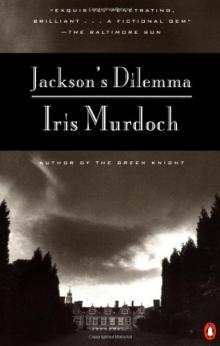 Jackson's Dilemma
Jackson's Dilemma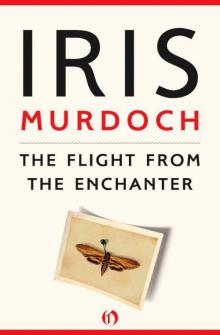 The Flight From the Enchanter
The Flight From the Enchanter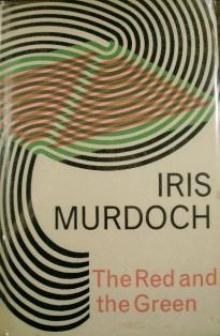 The Red and the Green (Vintage Classics)
The Red and the Green (Vintage Classics)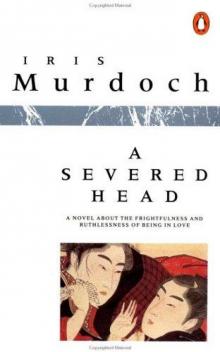 A Severed Head
A Severed Head The Black Prince
The Black Prince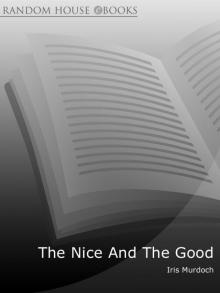 The Nice and the Good
The Nice and the Good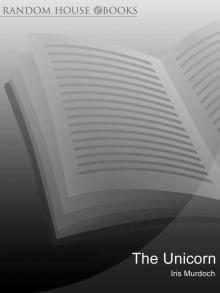 The Unicorn
The Unicorn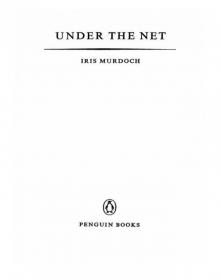 Under the Net
Under the Net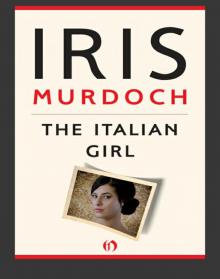 The Italian Girl
The Italian Girl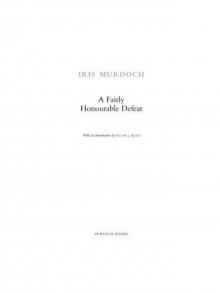 A Fairly Honourable Defeat
A Fairly Honourable Defeat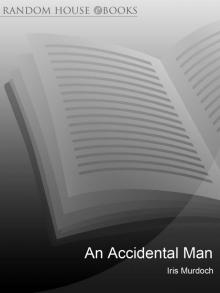 An Accidental Man
An Accidental Man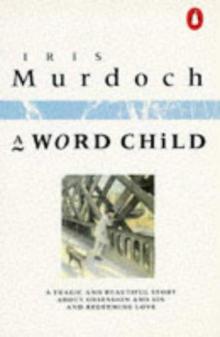 A Word Child
A Word Child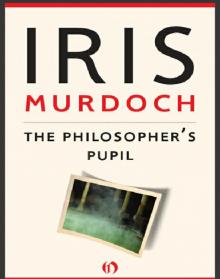 The Philosopher's Pupil
The Philosopher's Pupil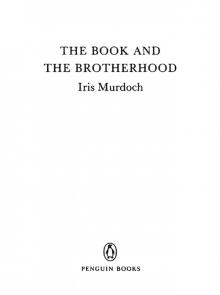 The Book and the Brotherhood
The Book and the Brotherhood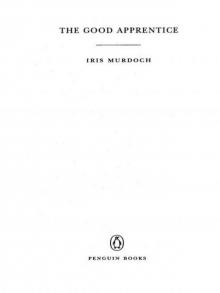 The Good Apprentice
The Good Apprentice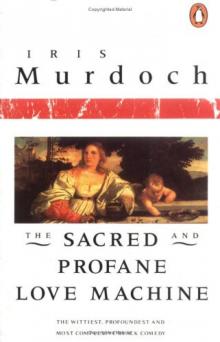 The Sacred and Profane Love Machine
The Sacred and Profane Love Machine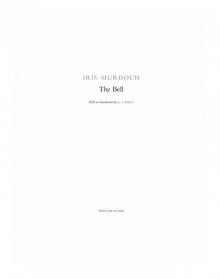 The Bell
The Bell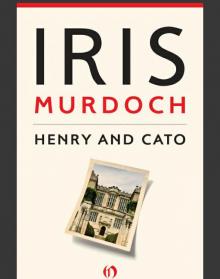 Henry and Cato
Henry and Cato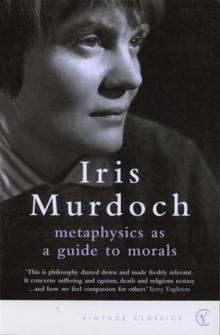 Metaphysics as a Guide to Morals
Metaphysics as a Guide to Morals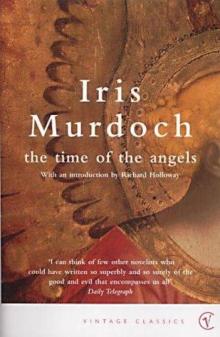 The Time of the Angels
The Time of the Angels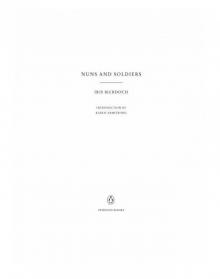 Nuns and Soldiers
Nuns and Soldiers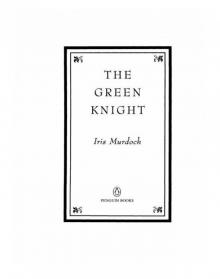 The Green Knight
The Green Knight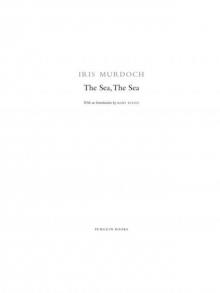 The Sea, the Sea
The Sea, the Sea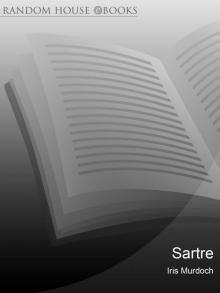 Sartre: Romantic Rationalist
Sartre: Romantic Rationalist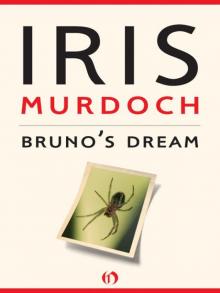 Bruno's Dream
Bruno's Dream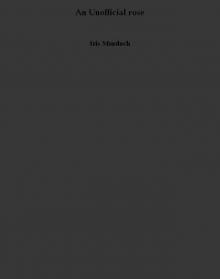 An Unofficial rose
An Unofficial rose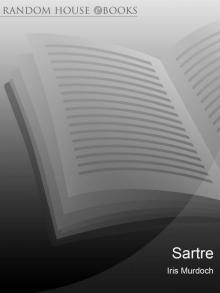 Sartre
Sartre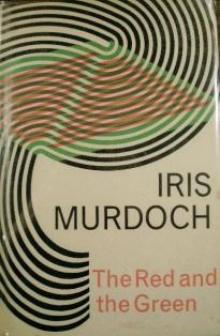 The Red and The Green
The Red and The Green